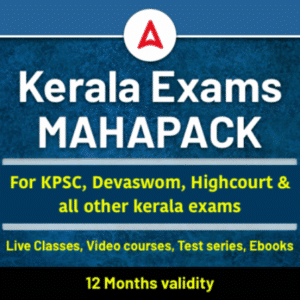Table of Contents
Kerala PSC Dresser/Nursing Assistant Gr. I Syllabus 2023: Kerala Public Service Commission has released the Kerala PSC Dresser/Nursing Assistant Gr. I Exam Date 2023. In this article we will provide the detailed syllabus of the upcoming Dresser/Nursing Assistant Gr. I Exam 2023. In order to crack the exam, one needs to have a clear understanding of the syllabus, therefore read through to broaden your perspective. You can also download Kerala PSC Dresser/Nursing Assistant Gr. I Exam Syllabus 2023 in pdf format.
| Kerala PSC Dresser/Nursing Assistant Syllabus 2023 | |
| Organization | Kerala Public Service Commission |
| Category | Exam Syllabus |
| Exam Name | Dresser/Nursing Assistant Gr. I Exam |
| Kerala PSC Dresser/Nursing Assistant Gr. I Exam Date | 4th May 2023 |
| Official Website | https://www.keralapsc.gov.in/ |
Kerala PSC Dresser/Nursing Assistant Gr. I Exam Syllabus 2023
Kerala PSC Dresser/Nursing Assistant Gr. I Exam Syllabus 2023: കേരള പബ്ലിക് സർവീസ് കമ്മീഷൻ കേരള PSC എക്സാം കലണ്ടർ മെയ് പരീക്ഷ കലണ്ടർ 2023 പുറത്തിറക്കി. പരീക്ഷയ്ക്കുള്ള തയ്യാറെടുപ്പുകൾ ആരംഭിക്കാൻ സമയമായി. പരീക്ഷയിൽ വിജയിക്കുന്നതിന്, സിലബസിനെക്കുറിച്ച് വ്യക്തമായ ധാരണ ഉണ്ടായിരിക്കണം, അതിനാൽ കേരള PSC ഡ്രസ്സർ/നഴ്സസിങ് അസിസ്റ്റൻറ് ഗ്രേഡ് I സിലബസ് 2023 വിശദമായി വായിച്ച് മനസിലാക്കുക. നിങ്ങൾക്ക് Dresser/Nursing Assistant Syllabus 2023 pdf രൂപത്തിൽ ഡൗൺലോഡ് ചെയ്യാം.
Kerala PSC Dresser/Nursing Assistant Exam Syllabus 2023: Overview
ചുവടെ നൽകിയിരിക്കുന്ന പട്ടികയിൽ Kerala PSC Dresser/Nursing Assistant Gr. I Exam Syllabus 2023 സംബന്ധമായ എല്ലാ പ്രധാനപ്പെട്ട വിവരങ്ങളും ലഭിക്കും.
| Dresser/Nursing Assistant Gr. I Exam 2023 | |
| Organization | Kerala Public Service Commission |
| Category | Exam Syllabus |
| Department | Malabar Cements Limited |
| Post Name | Dresser/Nursing Assistant Gr. I |
| Category No. | 322/2022 |
| Kerala PSC Dresser/Nursing Assistant Gr. I Admit Card Date | 20 April 2023 |
| Kerala PSC Dresser/Nursing Assistant Gr. I Exam Date | 4th May 2023 |
| Mode of Examination | OMR/ONLINE (Objective Multiple Choice) |
| Medium of Questions | English |
| Total Marks | 100 |
| Duration of Examination | 1 Hour 30 min |
| Official Website | www.keralapsc.gov.in |
Kerala PSC Office Attendant Mains Syllabus 2023
Dresser/Nursing Assistant Exam Pattern 2023
കേരള പിഎസ്സി Dresser/Nursing Assistant പരീക്ഷയുടെ വിശാലമായ മാതൃക ഇതാണ്:
- ഒബ്ജക്ടീവ് അടിസ്ഥാനത്തിലുള്ള പരീക്ഷയാണിത്.
- ആകെ 1.30 മണിക്കൂറാണ് പരീക്ഷാ ദൈർഘ്യം.
- ആകെ മാർക്ക് 100.
- ഓരോ ശരിയായ ഉത്തരത്തിനും 1 മാർക്ക് നൽകും.
- ഓരോ തെറ്റായ ഉത്തരത്തിനും 1/3 മാർക്ക് കുറയ്ക്കുന്നു.
Dresser/Nursing Assistant Exam Date 2023
| Kerala PSC Dresser/Nursing Assistant Gr. I Exam Pattern 2023 | ||
| Module | Topic | Marks |
| Module I | BEHAVIOURAL SCIENCES | 10 Marks |
| Module II | BEHAVIOURAL SCIENCES | 10 Marks |
| Module III | FUNDAMENTALS OF NURSING | 10 Marks |
| Module IV | COMMUNITY HEALTH NURSING | 10 Marks |
| Module V | MEDICAL SURGICAL NURSING | 10 Marks |
| Module VI | MENTAL HEALTH NURSING | 10 Marks |
| Module VII | CHILD HEALTH NURSING | 10 Marks |
| Module VIII | MIDWIFERY AND GYNEACOLOGICAL NURSING | 10 Marks |
| Module IX | NURSING EDUCATION & INTRODUCTION TO RESEARCH | 10 Marks |
| Module X | PROFESSIONAL TRENDS AND ADJUSTMENT & NURSING ADMINISTRATION AND WARD MANAGEMENT |
10 Marks |
| Total | 100 Marks | |
Fill the Form and Get all The Latest Job Alerts – Click here

Adda247 Kerala Telegram Link
Kerala PSC May Exam Calendar 2023
Kerala PSC Dresser/Nursing Assistant Gr. I Detailed Exam Syllabus 2023
MODULE – 1 (10 Marks)
BEHAVIOURAL SCIENCES
1. ANATOMY & PHYSIOLOGY
Anatomical terms
Circulatory System – Structure & function of heart and blood vessels
Lymphatic System – Structure and function of lymph vessels, lymph
circulation and lymphatic tissues –spleen and thymus.
Respiratory System – Structure and function of respiratory organs and
characteristics of normal respiration and deviation
Digestive System – Structure and function of alimentary tract
Excretory System – Structure and function of kidney, formation
and composition of urine, fluid and electrolyte balance
Endocrine System – Structure and function of thyroid, parathyroid,
pituitary, adrenal gland and pancreas
Reproductive System – Structure and function of male and female
reproductive system, Structure and function of breast and Reproductive
health.
Nervous System – Structure and function of brain, cranial nerves,
spinal cord, motor and sensory pathways of spinal cord and autonomic
nervous system.
Sense organs – Skin, eye, ear, nose and tongue. Physiology of vision,
hearing, smell, touch, taste and equilibrium.
.
Skeletal & Muscular System – Formation and growth of bones, tendons,
ligaments and cartilages, classification of bones, axial and appendicular
skeleton. Structure and function of muscle
2. MICROBIOLOGY
– History of bacteriology and microbiology, types of microorganisms,
normal flora of body, pathogenesis and common diseases, culture and
isolation of microbes.
– Sources and types of infection, factors affecting growth of microbes, cycle
of transmission of infection, reaction of body to infection, mechanism of
resistance and collection of specimen.
– Society – definition, social groups-types, structures, intergroup
relationship, group cycle, group behaviour and group morale.
– Social change – factors affecting and effect on society and institution
leading to social problems.
– Social control, social stratification, social problems – prostitution, crime
divorce, dowry system, juvenile delinquency, drug addiction, alcoholism,
handicapped, over population and slum.
– Social agencies and remedial measures.
– Culture and characteristics of community – definition, rural and urban,
cultural and characteristics.
MODULE II (10 Marks)
BEHAVIOURAL SCIENCES
PSYCHOLOGY
– Concept, scope and significance of psychology for nurses.
– Structure of mind – conscious, preconscious ,id, ego and super
ego.
– Psychology of human behaviour, concept of mental health – Basic
human needs, dynamics of behaviour, motivation of drives. body
mind relationship, mental health.
– Mental mechanisms – uses and importance. Attitudes- meaning,
development, changes in attitude, effects of attitude on
behaviour, importance of positive attitude for nurse.
.
– Habits – meaning and formation, breaking of bad habits,
importance of good habit formation for the nurse.
– Learning – nature, types, laws of learning, factors affecting
learning, memory and forgetting.
– Thinking and Reasoning – nature and types of thinking, reasoning,
problem solving, importance of creative thinking for nurse.
– Observation and Perception – Attention, perception, laws of
perception, factors affecting attention and perception, errors in
perception.
– Concept and development of personality, assessment of
personality, characteristics of various age groups, will and
character.
– Nature and measurement of intelligence, mental ability, nature of
intelligence and development. Individual difference in
intelligence.
SOCIOLOGY
– Nature, scope and significance of sociology in nursing
– Socialisation process, influence of environment on individual
development, rights and responsibilities of individual in societysocialisation process,effect of environment on human growth and
development.
– Concept, charecteristics and type of family, family cycle and basic
needs of family ,functions of family, importance of
interdependence of family members, important functions of family
and their problems. and problems, types of marriage, medical and
sociology aspects of marriage.
MODULE III (10 Marks)
FUNDAMENTALS OF NURSING
– Concept,scope, ethics and principles of nursing ,history of
nursing in India,health care agencies
– Holistic approach in nursing, determinants of health ,effects of
illness
– Therapeutic Environment-physical, psychological and aesthetic
factors, prevention of environmental hazard
.
– Patient’s adjustment to hospital-person, socio-economic and
cultural background
– Admission, transfer and discharge procedures
– Basic nursing skills-Communication, interview, recording and
reporting
– Nursing process-assessment, diagnosis, planning, implementation
and evaluation
– Meeting the basic needs of patient- Physical needs, hygienic
needs, elimination needs, nutritional needs, psychological and
spiritual needs. Diversional and recreational therapy,care of
terminally ill and dying patient.
– Assessment of patient – Physical, physiological and psychological
assessment.
– Infection control methods – nature and type of infection, chain of
infection transmission,
– Medical and surgical asepsis, isolation precaution, barrier
nursing, hand washing, isolation, personal protective
equipment,its uses, types, techniques of wearing and removing.
transportation of infected patient.
– Biomedical waste management-importance, types, hazards,
decontamination of hospital waste, segregation and
transportation and disposal.
– Therapeutic nursing care-Care of patient with respiratory
problem, altered body temperature, fluid electrolyte imbalance,
body elimination deviation, care of unconscious patient, bed
ridden patient and care of patients with pain.
– Clinical Pharmacology – Principles, routes, effects and storage of
medications, medication errors, Broad classification of drugs,
systems of drug measurements, dosage calculations,
terminologies and abbreviations used in the prescription of
medications. Oral and parenteral therapies, advanced techniques
epidural, intrathecal, intraosseous, intraperitoneal, intrapleural,
intraarterial. Topical administration,direct applications,
inhalations, recording and reporting of medications administered.
FIRST AID
– Importance and principles of first aid,Procedures and techniques
in first aid,Transportation of the injured,CPR
– First aid in emergencies – asphyxia,drowning,shock,wounds and
blleding,Injuries to the bones,joints and
muscles,fractures,sprains,strains,hanging,falls.
– Burns and scalds,poisoning-ingestion,inhalation,bites and stings.
– Foreign body in eye,ear,nose and throat.
– Various community emergencies and community resources – fire,
explosions,f loods, earthquakes, Role of nurse in disaster
management,Rehabilitation.
– Community resources-Police,Ambulance services,Voluntary
agencies – local,state,national and international.
MODULE 1V (10 Marks)
COMMUNITY HEALTH NURSING
– Concept of health and disease, Primary health care, Promotion
and maintenance of health.
– Philosoph, goals, objectives, principles, concept and importance
of community health nursing, qualities and functions of
community health nurse, steps of nursing process.
– Health system in India, health care delivery system, health
planning in India.
– National health and family welfare programmes, major health
problems in India.
– Specialized community health services and nurses role.
– Concept and function of health team, Role of nursing personnel at
various levels.
– Health information system, health agencies-International and
national.
– Health assessment of infant, preschool, school going, adolescent,
adult, antenatal, postnatal women and elderly.
– Principles and uses of epidemiology, levels of prevention f
disease, disease transmission, immunization, control of infectious
disease.
– Family health services, family health goals, purposes and
principles of home visits, bag technique, referral system.
.
– Records and reports, types and its uses, preparation and
maintenance.
– Management of minor ailments.
NUTRITION
– Classification of foods,Normal dietary requirement,balanced
diet,diseases and disorders caused by the imbalance of
nutrients.food intolerance- inborn errors of metabolism.
– Various methods of food preparation,preservation and storage.
– Therapeutic diet- Diet modifications in relation to the medical and
surgical conditions.
– Special diet- low sodium,fat free,iron rich,low protein,high
protein,high caloric,geriatric diet,diabetic diet,bland diet.high
fibre,liquid diet,semi-solid and soft diet.
– Nutritional programmes and problems in India.
MODULE V (10 Marks)
MEDICAL SURGICAL NURSING
– Pathophysiological mechanism of disease, altered immune
response, autoimmune diseases
– Fluid electrolyte imbalance, operation room technique,
management of patient undergoing surgery – preoperative,
Intraoperative and post operative.
– Management of patients with impaired respiratory function, GI
disorders, metabolic and endocrinal disorders, renal and urinary
disorders, neurological disorders and connective tissue and
collagen disorders.
– Nursing management of elderly.
– Prevention, screening, early detection, warning signs of cancer.
– Epidemeology, etiology, classification, pathophysiology, staging
,clinical features, diagnosis, treatment modalities of oncological
conditions.
.
– Oncological emergencies, treatment modalities- immunotherapy,
radiotherapy, surgical intervention, stem cell therapy, bone
marrow transplantation, gene therapy and other forms of therapy.
– Psychosocial aspects of cancer, rehabilitation, palliative care,
drugs used in cancer
– Medical, surgical and nursing management of patients with burns,
breast disorders, integumentary disorders
– Plastic and reconstructive surgery, skin graft flaps, complications,
preparation of patient for constructive surgery, postoperative
care and health education.
– Management of patients with ophthalmic conditions, Preventive
and rehabilitative aspects, National programs on blindness,
Ocular emergencies, Eye banking, eye irrigations, eye dressing
and bandage, assisting for removal of foreign body.
– Management of patients with ear,nose and throat disorders.
cardiovascular, circulatory and haematological disorders and
communicable diseases.
– Management of patients with sexually transmitted diseases and
musculoskeletal disorders.
– Role of nurse in medical and surgical emergencies – scope and
practice of emergency nursing, principles of emergency care,
triage, airway obstruction, hemorrhage, shock.
– Trauma- intraabdominal, crush injuries, multiple injures,
fractures,
– Poisoning- ingested, inhaled, food poisoning, injected poisons –
stinging insects, snake bite, chemical burns,
– Environmental emergencies – heat stroke, snake bite, drowning,
hanging.
– Role of nurse in emergency and disaster nursing-natural and
manmade, emergency preparedness, community resources.
MODULE V1 (10 Marks)
MENTAL HEALTH NURSING
– Concept of mental health and mental illness, Principles of mental
health nursing.
– History and trend of psychiatric nursing, National mental health
programme.
– Mental health assessment –history taking, MSE, Interview
technique.
– National mental health programmes
– Therapeutic nurse patient relationship-components, phases,
significance
– Communication skills, factors influencing communication,
barriers.
– Psycho pathophysiology of human behaviour, classification of
mental disorder
– Disorders of thought, motor activity, perception, mood, speech,
memory, concentration and judgement.
– Management of patients with various mental disorders.
– Personality, types of personality related to psychiatric disorders.
– Substance use,child and adolescent psychiatric disorder- sleep,
eating and sexual disorders.
– Bio-psychosocial therapies and role of nurse in these therapies.
– Concept of preventive mental health services during childhood,
adolescent, adulthood and old age, Role of nurse in national
mental health services.
– Psychiatric emergencies and crisis intervention- Patients with
overactive, underactive and violent behaviour, suicide, adverse
drug reactions, withdrawal symptoms, a/c psychosis.
– Forensic psychiatry and legal aspects.
MODULE VII (10 Marks)
CHILD HEALTH NURSING
– Concept of child health care, trends and emerging challenges for
paediatric nurse.
– Preventive paediatrics and vital statistics
– Growth and development
– Role of nurse in caring a sick child, Paediatric procedures
– Medical and nursing management of children with behavioural
disorders
– Management of children with communicable diseases. child abuse
– Protein energy malnutrition, bites, stings, pica, tics
– Health problems of children, accidents, obesity, Juvenile
delinquency.
– Nursing management of patients with congenital disorders
– Management of patients with various disorders of Renal system,
Respiratory system, GI system, CVS system, haematological
system, neurological system, and endocrine system.
– Management of handicapped children, mental retardation,
dyslexia, vision and hearing impairment.
– Fluid electrolyte imbalance, burns.
– Problems of locomotion –
osteomyelitis,poliomyelitis,kyphosis,lordosis,scoliosis,fractures.
– Pre and post operative care of children undergoing surgery.
– Various child welfare services, ethical and legal aspects of
paediatric nursing.
MODULE VIII (10 Marks)
MIDWIFERY AND GYNEACOLOGICAL NURSING
– Scope and trends in midwifery,vital statistics related to maternal
health in India.
– Stages of embryological and fetal development
– Normal pregnancy and its management – Preconception care,
genetic counselling, physiological changes in pregnancy,
diagnosis of pregnancy, antenatal care and minor disorders of
pregnancy.
– Various stages of labour, role of midwife in caring for a woman in
labour.
– Management of normal newborn, management of normal
puerperium.
– Management of complications during pregnancy and risk
pregnancy.
– Management of high risk labour and complications of third stage.
– Puerperal complications and its management.
– Assessment and management of high risk and sick newborn.
– Levels of care in neonatal ICU.
– Obstetric emergencies ,post abortion care.
– Role of midwife in the administration of drugs during pregnancy,
labour and post partum period, drugs used in obstetrics,
teratogens.
– Ethical and legal issues related to midwifery.
– Terms used in gynaecology, history taking, examination and
investigation in gynaecology.
– Physiology, psychology and pathology of puberty
– Fertility and infertility.
– Management of patients with various pelvic infections.
– Care of women with gynaecological disorders.
– Management of patients with breast disorders.
– Menopause – physiological changes, signs and symptoms, health
education and counselling, hormone replacement therapy and
surgical menopause.
MODULE 1X (10 Marks)
NURSING EDUCATION & INTRODUCTION TO RESEARCH
– Concept of education, teaching learning process, methods of
teaching
– Significance of research in nursing, research process- Purposes,
objectives and steps of research approach and design – types,
methods, advantages and disadvantages
– Data collection process –methods and instruments of data
collection, data analysis-compilation, tabulation, classification,
summarization ,presentation and interpretation of data using
descriptive statistics
– Introduction to statistics–scales of measurement, frequency
distribution, mean, median, mode and standard deviation,
utilization of research in nursing practice.
MODULE X (10 Marks)
PROFESSIONAL TRENDS AND ADJUSTMENT & NURSING ADMINISTRATION
AND WARD MANAGEMENT
– Nursing as a profession, role of a professional nurse
– Professional ethics ,etiquettes for employment, personal and
professional development- career nursing ,continuing education
and in-service education.
– Legislation in nursing, profession and related organisations.
– Philosophy and principles of administration
– Management process – POSDCORB, Policies of hospital and
various department of hospital
– Administration of different health care units, legal
responsibilities, leadership styles.
– Management of supplies and equipment
– Cost and financing of health care services in India, national health
plans, role of state and central government in allocation of funds,
health insurance.
Kerala PSC Dresser/Nursing Assistant Exam Syllabus 2023
ഡ്രസ്സർ/നഴ്സിങ് അസിസ്റ്റൻറ് ഗ്രേഡ് I പരീക്ഷാ തീയതിക്കൊപ്പം, ഡ്രസ്സർ/നഴ്സിങ് അസിസ്റ്റൻറ്. പരീക്ഷക്കായുള്ള ലേറ്റസ്റ്റ് സിലബസും കേരള PSC യുടെ ഔദ്യോഗിക സൈറ്റിൽ (keralapsc.gov.in) പ്രസിദ്ധീകരിച്ചു. കേരള PSC ഡ്രസ്സർ/നഴ്സിങ് അസിസ്റ്റൻറ് ഗ്രേഡ് I പരീക്ഷാ സിലബസ് pdf ചുവടെ കൊടുത്തിട്ടുള്ള ഡയറക്റ്റ് ലിങ്ക് വഴി ഡൗൺലോഡ് ചെയ്യാം.
Kerala PSC Dresser/Nursing Assistant Gr. I Exam Syllabus 2023 Download Here
Also Read,
Weekly/ Monthly Current Affairs PDF (Magazines)
ഇതര പരീക്ഷകളുടെ ഏറ്റവും പുതിയ വിജ്ഞാപനങ്ങൾ, ദൈനംദിന ക്വിസുകൾ എന്നിവയ്ക്കായി ADDA247 മലയാളം ആപ്പ് ഡൗൺലോഡ് ചെയ്യുക.
Download the app now, Click here
ഇത് നിങ്ങൾക്കുള്ള സമയമാണ്. പരീക്ഷയ്ക്ക് സ്വയം തയ്യാറാകാനുള്ള ഏറ്റവും അനുയോജ്യമായ സമയമാണിത്. നിങ്ങൾ വീട്ടിൽ നിന്ന് ഞങ്ങളോടൊപ്പം പരീക്ഷയ്ക്ക് തയ്യാറാകുക. മികച്ച കോഴ്സുകൾ, മികച്ച ഹെഡ് ട്രെയിനർമാർ, ലളിതമായ നിർദ്ദേശങ്ങൾ, ഗുണനിലവാരമുള്ള ക്വിസ് ചോദ്യങ്ങൾ ഞങ്ങൾ നിങ്ങൾക്ക് നൽകുന്നു. ഈ അത്ഭുതകരമായ സമയം പഠിക്കാൻ നിങ്ങൾക്ക് ബുദ്ധിമുട്ടുള്ള കോഴ്സിന്റെ ഭാഗങ്ങൾ ശക്തിപ്പെടുത്തുക. Mock Tests, Test series , E-Books , Daily Current Affairs, Weekly Current Affairs, Monthly Current Affairs എന്നിവയുടെ സൗജന്യ PDF കൾ അങ്ങനെ നിരവധി പഠന സാമഗ്രികൾ ഇംഗ്ലീഷിലും മലയാളത്തിലും (English & Malayalam) ADDA 247 നിങ്ങൾക്ക് നൽകുന്നു. സൗജന്യവും, പണമടച്ചുള്ളതുമായ ക്ലാസുകൾ ഞങ്ങൾ നിങ്ങൾക്ക് ലാഭകരമായ രീതിയിൽ വാഗ്ദാനം ചെയ്യുന്നു.
***വരാനിരിക്കുന്ന പരീക്ഷകളിൽ വിജയിക്കാൻ ഞങ്ങളോടൊപ്പം ചേരുക***
Use Coupon code- KPSC (എക്കാലത്തെയും വിലക്കുറവ്)
*മലയാളത്തിലെ തത്സമയ ക്ലാസുകൾ ഇപ്പോൾ നിങ്ങളുടെ വീട്ടിൽ ലഭ്യമാണ്*

Kerala Exams Mahapack
*ലക്ഷ്യത്തിലേക്കുള്ള ആദ്യ ചുവടുവെപ്പ് | ADDA247 മലയാളത്തിൽ പരിശീലനം ആരംഭിക്കൂ*
Telegram group:- KPSC Sure Shot Selection
KPSC Exam Online Test Series, Kerala Police and Other State Government Exams




